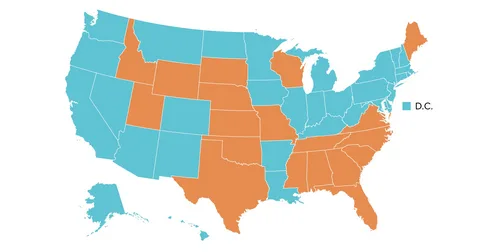A recent study suggests that the extension of Medicaid eligibility during the pandemic has led to increased postpartum coverage for maternal health care, potentially reducing postpartum uninsurance rates in the United States. The findings highlight the significance of Medicaid coverage in ensuring access to quality care for mothers, with Medicaid funding almost half of all births in the country.
Traditionally, Medicaid coverage ended at 60 days postpartum, leaving many individuals vulnerable to gaps in coverage during a critical period. However, new data indicates that a substantial number of maternal deaths occur between 43 and 365 days postpartum, underscoring the importance of extending coverage beyond the initial 60-day period.
Senior author Lindsay Admon, an assistant professor of obstetrics and gynecology at the University of Michigan Medical School, emphasized the essential role of health insurance, such as Medicaid, in facilitating access to care. The implementation of the Families First Coronavirus Response Act (FFCRA) in March 2020 prevented disenrollment from Medicaid during the public health emergency, marking the first time pregnancy-related Medicaid coverage was extended beyond 60 days postpartum. Subsequently, the American Rescue Plan Act (ARPA) passed in 2021 provided states with federal funding to extend Medicaid coverage through the first year postpartum post-pandemic.
A study analyzing the impact of the FFCRA on postpartum coverage and care during the pandemic revealed significant increases in postpartum Medicaid enrollment and a 40% decrease in postpartum uninsurance among individuals covered by Medicaid at the time of childbirth. Lead author Jamie Daw, an assistant professor of health policy and management at the Columbia University Mailman School of Public Health, noted that nearly all states have implemented or are planning to implement extensions of pregnancy Medicaid coverage through the first year postpartum by March 2024.
While the study demonstrated positive outcomes in terms of increased Medicaid enrollment during the postpartum period, there was no apparent association with postpartum visit attendance, contraception use, breastfeeding, or depressive symptoms. The authors suggested that the lack of such findings could be attributed to the impact of the COVID-19 pandemic, including stay-at-home orders and the limited duration of the data follow-up postpartum.
The study’s results serve as a valuable reference for states considering the adoption of ongoing extensions of pregnancy-related Medicaid coverage through the first year postpartum. Admon highlighted the potential benefits of such extensions in reducing uninsurance rates and enhancing access to essential maternal health services. By learning from the lessons of the pandemic, states can make informed decisions to improve postpartum care and support for vulnerable populations.
*Note:
1. Source: Coherent Market Insights, Public sources, Desk research
2. We have leveraged AI tools to mine information and compile it

